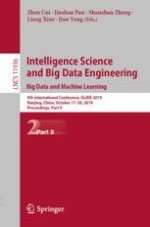2019 | OriginalPaper | Chapter
3Q: A 3-Layer Semantic Analysis Model for Question Suite Reduction
Authors : Wei Dai, Siyuan Sheni, Tieke Hei
Published in: Intelligence Science and Big Data Engineering. Big Data and Machine Learning
Publisher: Springer International Publishing
Activate our intelligent search to find suitable subject content or patents.
Select sections of text to find matching patents with Artificial Intelligence. powered by
Select sections of text to find additional relevant content using AI-assisted search. powered by
